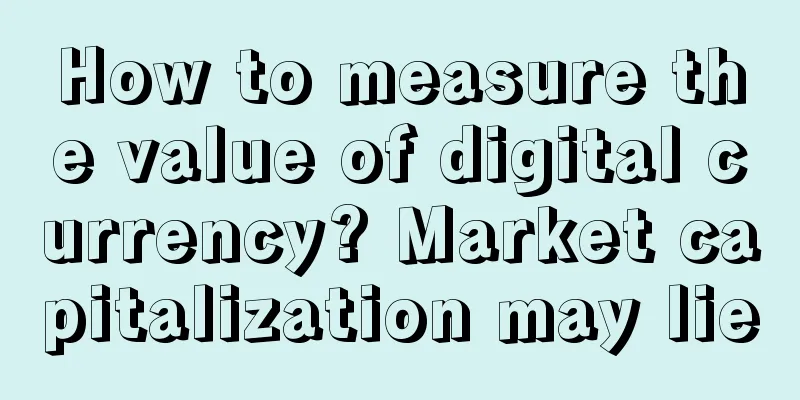Does the US government control the fate of Bitcoin? Revealing their purpose and means

|
New data shows how the federal government has amassed billions of dollars’ worth of Bitcoin over the years as it plans to execute more complex purchases and sales worth hundreds of millions of dollars. After years of various seizures and confiscations, the U.S. government has become one of the world’s largest holders of Bitcoin, with 200,000 Bitcoins valued at over $5 billion. In the years since Bitcoin emerged as a global phenomenon, millions of supporters have come from very different backgrounds and perspectives in pursuit of a supranational currency that is not restricted by any country. Among them, there are naturally some criminals. Even in October 2023, new details are still coming to light about prosecutions for Bitcoin-related crimes that occurred more than a decade ago. Jimmy Zhong, who was ultimately sentenced to prison this year, was convicted of stealing about 50,000 Bitcoins from the now-shuttered Silk Road in 2012. The government seized his bitcoins long ago, but many of them remain essentially frozen as legal proceedings proceed. Obviously, bitcoins have accumulated enormous value in the decade since. However, it must be remembered that this particular example is only one of many, and a very early one. Over the years, it has been discovered that the federal government has accumulated a large stockpile of Bitcoins, approximately 200,000. Such a rigorous and cumbersome trial process seems to have surprisingly brought profits to the government's "investment", as a lengthy trial would only lead to a complicated asset liquidation process. In short, it costs the government nothing to simply hold onto these Bitcoins by keeping them in an incarcerated person’s wallet for years. Meanwhile, Bitcoin has been growing at an incredible rate. " We don't game the market, we basically follow the time that passes in the process," Jared Koopman, executive director of the IRS's Cyber and Forensic Services Division, told the Wall Street Journal. That may be the case so far, but over the years, the ways in which governments have tried to profit from Bitcoin have become increasingly savvy. For example, federal agencies initially would sell the coins to interested buyers at auctions, selling tens of thousands of confiscated coins at a time in 2014. However, since a pilot trial by the Marshals Service in 2021, they have switched to selling directly on exchanges. Even though the government pays fees for services that have been derided as extortionate, it has still netted hundreds of millions of dollars from repeated sales, with no signs of stopping. What’s particularly ironic is that a federal agency can even use the exchange to sell these assets, and another agency can file a lawsuit against it not long after! If this dynamic is abused, it can create a clean revenue stream. Given this, the Bitcoin community has been asking itself a question: What would happen if the U.S. government entered the space in a larger way? Apparently, in reality, federal agencies have little interest in embracing a currency that is not controlled by the state. As we all know, El Salvador is the only country in the world that accepts Bitcoin as legal tender, a move that is clearly motivated in part by an effort to weaken the hegemony of the U.S. dollar. While the United States may not believe in Bitcoin's mission, that doesn't change the fact that Bitcoin is currently one of the biggest whales in existence. Historically, white whales have had a huge impact on Bitcoin's price fluctuations. Just consider today’s market conditions and a simple thought experiment: what would it look like if the federal government began to more deliberately act like a Bitcoin whale, maximizing its gains and attempting to directly influence the price of its asset? By complicating its liquidation process, it has already taken the first step toward becoming a powerful Bitcoin selling machine. The markets these days are active and volatile, full of opportunities for action. For example, Bitcoin’s hashrate has been exploding for more than a year as Bitcoin miners around the world have been preparing for the next halving. Even now, its productivity continues to reach new heights. All of these miners have been preparing for this halving and consolidating and modernizing their facilities, while even preparing for a political effort in this ecosystem where governments plan to sell hundreds of billions of dollars worth of assets. How many individuals controlling these sales would it take to actually take some deliberate action? How hard would it be for a federal agency to make a few big sales that would trigger a crisis of confidence as the effects of the halving ripple through the space? Even if it sells at a loss relative to 2024 prices, that would dwarf the massive gains these assets have made over the years. What’s more, the government is holding onto these assets for years at a time! A prolonged bear market could push companies around the world to the absolute brink, and federal agencies are already engaged in legal battles with some of the world’s largest cryptocurrency exchanges. If assets are seized in a larger crash, the government can hold onto them for years and see astronomical gains. The government can also choose to see a continued rise in Bitcoin in the near future. In the long battle to win regulatory approval for a Bitcoin ETF, the Bitcoin community generally believes that victory is within reach. The SEC's reasons for opposing the ETF failed to convince the US Court of Appeals, and the market has been salivating. Mere rumors of regulatory success have sent Bitcoin up thousands of dollars in a matter of days, and actual approval will be explosive. What happens if these approvals become widespread? It doesn’t take a true Bitcoin enthusiast to do that, just someone who believes that a growing industry can help America. A few years ago, it was unimaginable that these seized assets would one day be worth billions of dollars. How can we imagine what the future holds? This hypothesis is not intended to seriously prove that a massive repositioning of Bitcoin will occur. Even if the value of these Bitcoin reserves doubles, $10 billion is just a drop in the bucket compared to the US GDP of $23 trillion. However, anyone in this space should be aware of the sheer power that exists when the ability of whales to buy and sell is combined with physical power. How many people does it really take? If someone with power in these federal agencies wishes to execute a well-thought-out plan, how difficult would it really be? Even if a worker’s salary is the same whether the price of Bitcoin is high or low, they will surely have an interest in winning as many cases as possible against “crypto criminals.” All those criminals will see their assets piled together. In short, the main problem is that the existence of large amounts of money like this is an organizing principle in itself. Considering the federal government’s ability to wage war or influence global trade, it has enormous power. But Bitcoin’s economic interests also have enormous influence, and that influence can affect people at all levels of these bureaucracies. For a normal whale, selling hundreds of millions would be a very dramatic event that would ripple through the industry, but for this whale, it was just a regular liquidation of the government's long-standing backlog of assets. It only takes a little push to create its own ripples. No one affected by the ripples truly believes in replacing the dollar, or an untrustworthy world economy. They just need to understand that the rise of Bitcoin has been extremely good for business so far. |
<<: When you are optimistic about an investment product, how much capital should you invest?
>>: SEC Chairman says FTX restart is just around the corner?
Recommend
Palmistry that indicates prosperity and luck after middle age, Palmistry that indicates good fortune
Some people have a hard life when they are young....
What are the facial features of a wealthy woman?
In fact, many people wish they were born rich. Th...
Where is the most prosperous place for a man's peach blossom mole?
If you want to have good luck in love, you must h...
Missed the halving, it’s time to refocus on Ethereum
Original title: "From 2015 to 2020, 5 major ...
Is the fortune of people with broken palms good?
The so-called broken palm refers to the palm lines...
What kind of face can make a woman prosperous for her husband?
A woman who can bring good luck to her husband ha...
Nexuslab Switzerland: Blockchain startup training camp
Inspired by the reliable and efficient decentrali...
What does a man with a big mouth mean?
What does it mean when a man has a big mouth? The...
The cryptocurrency Vertcoin (VTC) has suffered four 51% double-spending attacks in the past two months
Data from PeckShield Situational Awareness Platfo...
Women's career line, don't think wrongly
When it comes to a woman's career line, many p...
The future trend of the crypto market from the perspective of the global macroeconomy
Introduction: In the long run, many countries wil...
Bitcoin and blockchain technology will enter two key inflection points this year
Bitcoin has experienced two key turning points si...
What kind of man is not worthy of trust?
Some people are trustworthy, while others are not...
Is it good for children to have moles on the soles of their feet?
There are many things in the world that have some...
From wild imagination to practicality, where will Justin Sun lead TRON?
Recently, Justin Sun, the founder of TRON, was ra...









